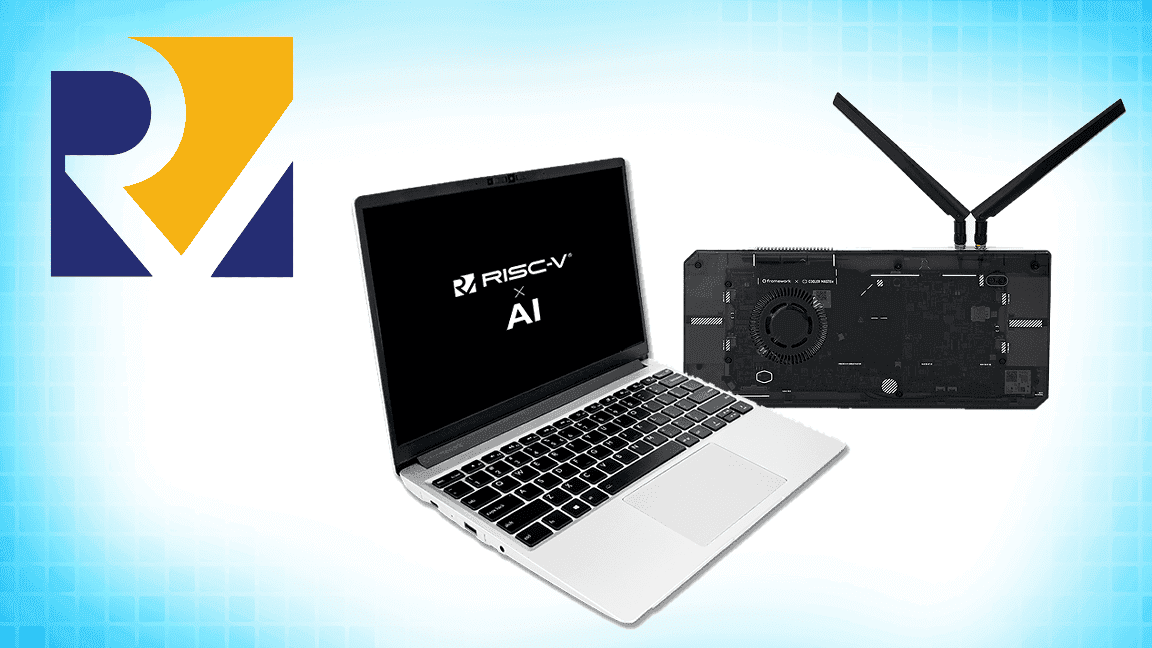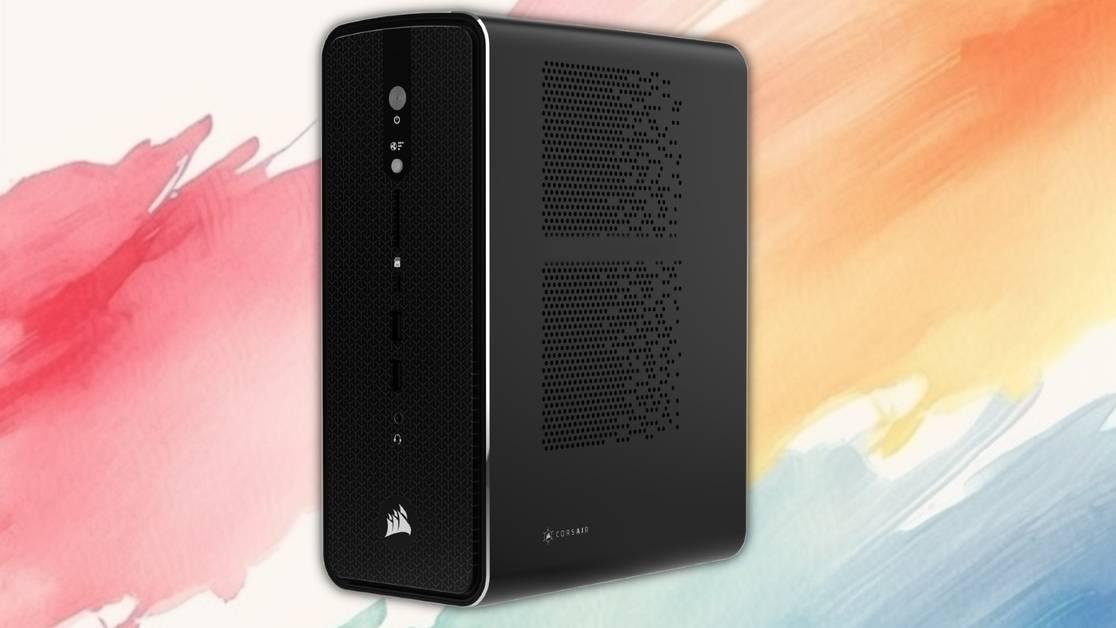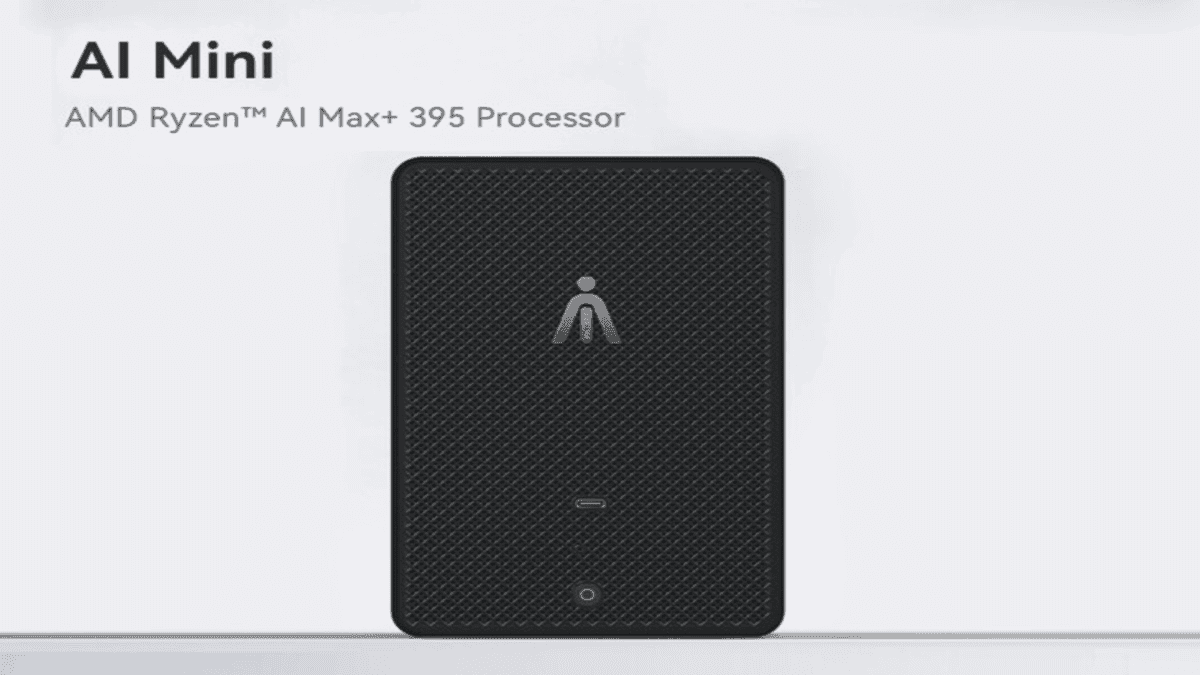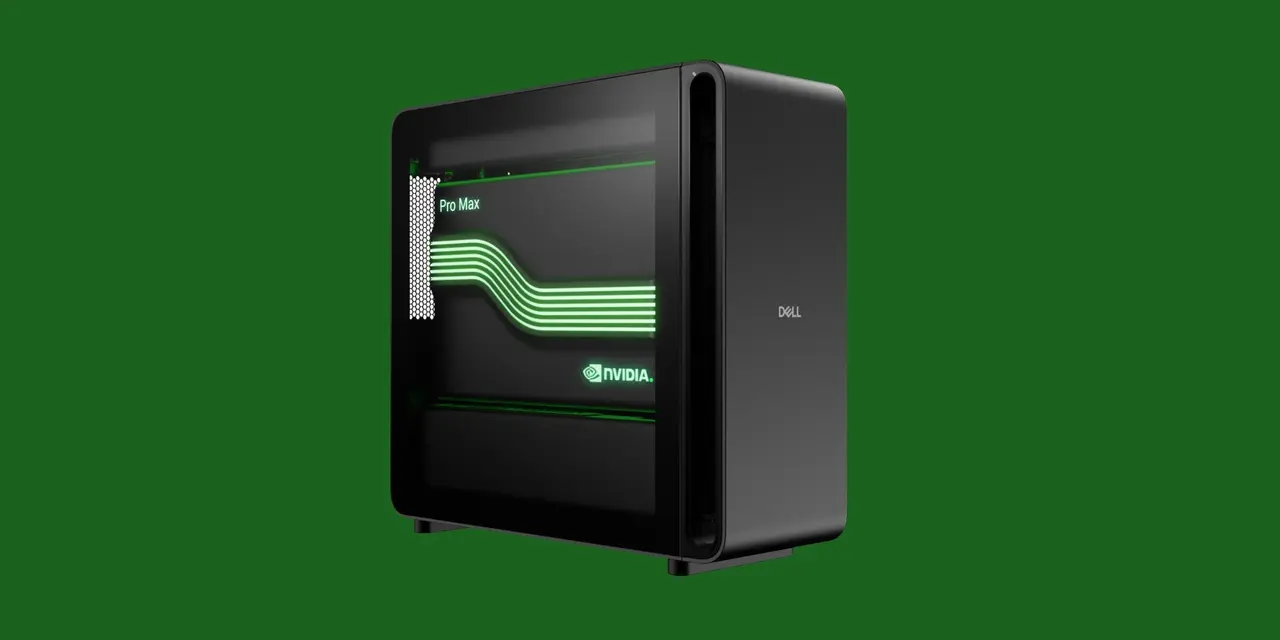System76 Launches Thelio Astra: High-End ARM64 Desktop for AI and Automotive Development
2 Sources
2 Sources
[1]
System76 Thelio Astra Reviewed: High-End ARM64 Developer Desktop Review
System76 is announcing one of their most innovative and interesting products going back to their Launch Configurable Keyboard and HP Dev One collaboration: the System76 Thelio Astra. The Thelio Astra is a high-end ARM64 desktop system geared for developers with a focus on AI / STEM / self-driving technologies and powered by Ampere Computing and NVIDIA. The System76 Thelio Astra is a custom-built ARM64 developer desktop designed for developers working on autonomous driving, automotive safety systems, software-defined vehicles, AI, and other areas where developers may be deploying to AArch64-based platforms/devices and wanting a desktop that is also AArch64 native to ease in the development and testing experience. The Thelio Astra provides a native AArch64 software experience without having to rely on emulation from x86_64 to ARM, deploying to an ARM-based cloud for testing, or resorting to typically slower on-device testing. System76 designed the Thelio Astra in collaboration with Ampere Computing. The System76 Thelio Astra makes use of Ampere Altra processors up to the Ampere Altra Max 128-core ARMv8 processor that in turn supports 8-channel DDR4 ECC memory. The Thelio Astra can be configured with up to 512GB of system memory, choice of Ampere Altra processors, up to NVIDIA RTX 6000 Ada Generation graphics, dual 10 Gigabit Ethernet, and up to 16TB of PCIe 4.0 NVMe SSD storage. System76 designed the Thelio Astra ARM64 workstation to be complemented by NVIDIA graphics given the pervasiveness of NVIDIA GPUs/accelerators for artificial intelligence and machine learning workloads. The Astra is contained within System76's custom-designed, in-house-manufactured Thelio chassis. Pricing on the System76 Thelio Astra will start out at $3,299 USD with the 64-core Ampere Altra Q64-22 processor, 2 x 32GB of ECC DDR4-3200 memory, 500GB NVMe SSD, and NVIDIA A402 graphics card. While a starting price of $3,299 may seem expensive for a desktop, simply buying an ASRock Rack micro-ATX motherboard with Ampere Altra Q64-22 combo goes for $1,434 as a starting price not to mention the memory, GPU, storage, and well-engineered cooling and chassis along with assembly and System76 technical support. The pricing for this physical ARM64 high-end desktop is also favorable compared to the ongoing cloud costs if relying on cloud instances to otherwise complete your ARM64 software builds, CI/CD, and other ARM64 testing remotely in the cloud -- with the Thelio Astra it can be more easily achieved on-premise in this quiet desktop system. Of course, the System76 Thelio Astra isn't limited to ADAS / SDV / AV / AI / ML workloads but can be used for any other task as well where you are seeking speedy ARM64 Linux development. For instance, Linux creator Linus Torvalds for a number of months now has been doing more ARM64 Linux testing with an Ampere Altra Max workstation. Hell you can just use this as a glorified Linux desktop if really trying to avoid x86_64 or similar reasons for choosing ARM. The other major OEMs/ODMs offering Ampere Altra products have focused on servers. So even four years after Ampere Altra first appeared, the System76 Thelio Astra is the first major ARM64 Linux desktop readily available and using these high core count ARMv8 processors. There have been various Ampere Altra motherboards from the like of ASRockRack, Altra-compatible heatsinks from Noctua, and other similar hardware for those wanting to build their own Ampere desktop/workstation but now it's conveniently available as a ready-to-ship developer desktop from System76. Compared to Ampere Altra servers, the Thelio Astra is designed to be very quiet during operation so that it can comfortably run beside your desk or similar. Arguably System76 should have launched this years ago. With Ampere Altra being in the marketplace for four years now it's too bad that this developer desktop wasn't out two or even three years ago. Similarly, AmpereOne is now "available" for the latest-generation ARM64 processors from Ampere Computing but availability is very limited still, higher pricing, and the AmpereOne line-up is currently focused on just the higher core count models without any offerings below 96 cores. So it's a bit awkward launching a brand new developer desktop at the end of 2024 that still is relying on DDR4 memory and PCIe Gen 4, etc. But even still, the System76 Thelio Astra does still offer competitive performance and especially power efficiency in most areas -- plus for lack of any real ARM64 high-end desktops from other vendors, it's really in a class of its own. I have been running a System76 Thelio Astra in the lab already for a lot of benchmarking and analysis. Continue on in exploring this unique ARM64 high-end developer desktop.
[2]
System76 and Ampere look to drive innovation in automotive tech with new Arm-powered Linux desktop
Linux computer manufacturer System76 has partnered with Ampere, the chipmaker founded by former Intel President Renée James, to launch the Thelio Astra - a developer desktop built for autonomous vehicles (AV), advanced driver-assistance systems (ADAS), and software-defined vehicles (SDVs). This new workstation is built around Arm64 architecture, using Ampere Altra processors, to provide developers with native Arm-based testing, reducing the need for inefficient Arm emulation on x86 systems. Thelio Astra offers the automotive industry a way to achieve faster, more efficient development on architecture identical to that found in automotive electronic control units (ECUs). System76's Thelio Astra aims to simplify development and testing for automotive projects, offering a versatile and efficient tool for developers working on the future of transportation. According to System76's Product Manager, Tony Rosella, "System76 is revolutionizing modern computing first with their Thelio Mega AI/ML power desktop, and now with Thelio Astra, an Arm developer desktop engineered to meet the demands of autonomous vehicle development." He added, "We've created this optimized workstation built around the powerful Ampere processors, and designed for the unique challenges of automotive developers." The desktop system is designed to handle intensive automotive software development tasks with a range of high-end specifications. It supports up to 128 cores on the Ampere Altra processor, 512GB of DDR4 ECC memory, an Nvidia RTX 6000 Ada GPU, and up to 8TB of PCIe 4.0 NVMe storage. The desktop also includes dual 25 Gigabit Ethernet ports, ensuring fast data transfer and connectivity. System76 says this powerful setup will allow developers to execute demanding workloads like continuous software testing, simulation, and autonomous vehicle algorithms. Joe Speed, Head of Edge at Ampere, emphasized the value of developing software natively on Arm64 architecture, saying, "End-to-end native parity is what the automotive industry needs to deliver better quality software faster. This 128-core desktop runs dozens of virtual ECUs executing thousands of unit tests." He added, "System76 is democratizing AV and SDV development by putting this power into the developer's hands, right on their desk."
Share
Share
Copy Link
System76 introduces the Thelio Astra, a powerful ARM64 desktop workstation designed for AI, autonomous driving, and software-defined vehicle development, featuring Ampere Altra processors and NVIDIA GPUs.

System76 Unveils Thelio Astra: A Groundbreaking ARM64 Developer Desktop
System76, in collaboration with Ampere Computing, has launched the Thelio Astra, a high-end ARM64 desktop system tailored for developers working on artificial intelligence, autonomous driving, and software-defined vehicle technologies. This innovative product marks a significant milestone in the availability of powerful ARM-based workstations for specialized development needs
1
2
.Cutting-Edge Hardware Specifications
The Thelio Astra boasts impressive hardware capabilities:
- Processors: Up to 128-core Ampere Altra Max ARMv8 processor
- Memory: Support for up to 512GB of DDR4 ECC memory
- Graphics: NVIDIA GPUs, up to RTX 6000 Ada Generation
- Storage: Up to 16TB of PCIe 4.0 NVMe SSD storage
- Networking: Dual 10 Gigabit Ethernet ports
This hardware configuration is designed to handle intensive workloads associated with AI, machine learning, and autonomous vehicle development
1
2
.Native ARM64 Development Environment
One of the key advantages of the Thelio Astra is its native ARM64 architecture, which eliminates the need for emulation from x86_64 to ARM. This feature allows developers to work directly on the target architecture, potentially improving efficiency and reducing development time for AArch64-based platforms and devices
1
.Pricing and Market Position
The Thelio Astra starts at $3,299 USD for a base configuration, which includes:
- 64-core Ampere Altra Q64-22 processor
- 2 x 32GB of ECC DDR4-3200 memory
- 500GB NVMe SSD
- NVIDIA A402 graphics card
While this may seem expensive, it's competitively priced when compared to the costs of individual components and the ongoing expenses of cloud-based ARM64 development solutions
1
.Impact on Automotive Technology Development
The Thelio Astra is positioned to accelerate innovation in the automotive sector, particularly in areas such as:
- Autonomous vehicles (AV)
- Advanced driver-assistance systems (ADAS)
- Software-defined vehicles (SDVs)
By providing a powerful, native ARM64 development environment, the Thelio Astra enables faster and more efficient testing and development of automotive software
2
.Related Stories
Industry Perspectives
Joe Speed, Head of Edge at Ampere, emphasized the importance of native ARM64 development for the automotive industry: "End-to-end native parity is what the automotive industry needs to deliver better quality software faster. This 128-core desktop runs dozens of virtual ECUs executing thousands of unit tests"
2
.Challenges and Considerations
Despite its innovative features, the Thelio Astra faces some challenges:
- Timing: The product launch comes four years after Ampere Altra processors first appeared in the market.
- Technology cycle: The use of DDR4 memory and PCIe Gen 4 may be seen as slightly outdated in late 2024.
- Competition: While unique in its class, the Thelio Astra may face competition from future ARM-based desktops
1
.
The System76 Thelio Astra represents a significant step forward in providing developers with powerful, native ARM64 workstations. Its focus on AI, autonomous driving, and software-defined vehicle development positions it as a valuable tool for innovation in these rapidly evolving fields.
References
Summarized by
Navi
Related Stories
DeepComputing Launches RISC-V-Based AI PC with Ubuntu, Marking a Milestone in Open-Source Computing
10 May 2025•Technology

Corsair Unveils AI Workstation 300: A Compact Powerhouse for AI Development
30 Jul 2025•Technology

Beelink Challenges Apple with AI-Powered Mini PCs: GTR9 Pro and AI Mini
08 May 2025•Technology

Recent Highlights
1
Google Gemini 3.1 Pro doubles reasoning score, beats rivals in key AI benchmarks
Technology

2
ByteDance's Seedance 2.0 AI video generator triggers copyright infringement battle with Hollywood
Policy and Regulation

3
ChatGPT cracks decades-old gluon amplitude puzzle, marking AI's first major theoretical physics win
Science and Research





